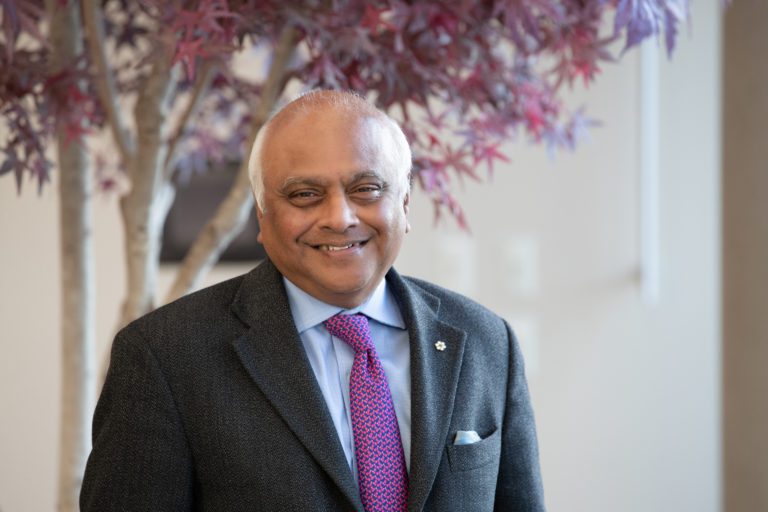
Shun Fu Lee
A biostatistician and clinical investigator at PHRI are pairing up this year to provide guidance to a Fellow of the Canadian Network for Statistical Training in Trials (CANSTAT), a new multi-institutional, multi-disciplinary training platform addressing a critical shortage of clinical trial biostatisticians in Canada.
Shun Fu Lee, Senior Principal Biostatistician, and Hertzel Gerstein, PHRI’s Deputy Director and a veteran clinical trialist, together will help guide a Fellow in hands-on experiential learning (applications open until April 15).
CANSTAT is designed as a one-year, full-time pan-Canadian fellowship that provides training to 10 participants this year (graduates of statistics-related fields), and 10 fellows next year – funded by a 2-year CIHR grant.

Shrikant Bangdiwala
Director of PHRI’s Statistics Department, and Senior Scientist Shrikant Bangdiwala, will take on another CANSTAT Fellow next year.
He is proud of Shun Fu Lee’s leadership role, which included being on the CANSTAT Steering Committee helping out with the recruitment process.
“She’s been in our department since 2013 – with extensive experience collaborating with more than 10 clinical randomized trials in design consultation, assisting grant applications, data monitoring reporting, conducting analysis, interpreting results, and participating in manuscript writing.”
Lee was the course lead for an introductory course on randomized clinical trials at McMaster University’s Department of Health Research Methods, Evidence, and Impact (HEI) where she is an Assistant Professor in Biostatistics.
Non-statistical elements of clinical trials
While the biostatistician is the primary mentor for CANSTAT Fellows, the clinical investigator’s co-mentorship is also key for success.

Hertzel Gerstein
“Fellows should come with a desire to learn about non-statistical as well as statistical elements of randomized clinical trials,” says Gerstein, a world renowned trialist and lead of PHRI’s diabetes research program for 20 years. “They should expect to do some hands-on work over the course of their fellowship.”
As well as working with their mentors, CANSTAT Fellows need to complete a series of online workshops given by experts, grounded in the design and analysis of clinical trials, and attend an in-person, two-day capacity-building meetings at the beginning of their fellowship and again at the end.
Lack of applied training in clinical trial methodology
The nominated principal applicant of CANSTAT – McMaster University researcher Sameer Parpia – has noted that currently in Canada, biostatistics graduate programs provide students with a strong theoretical background, but lack applied training in clinical trial methodology and the practical aspects of working on trials.
CANSTAT is working to fill that gap; after all, the involvement of a biostatistician has been shown to increase the quality and vigour of clinical trials – by ensuring high methodological quality and, ultimately, helping patient outcomes.



